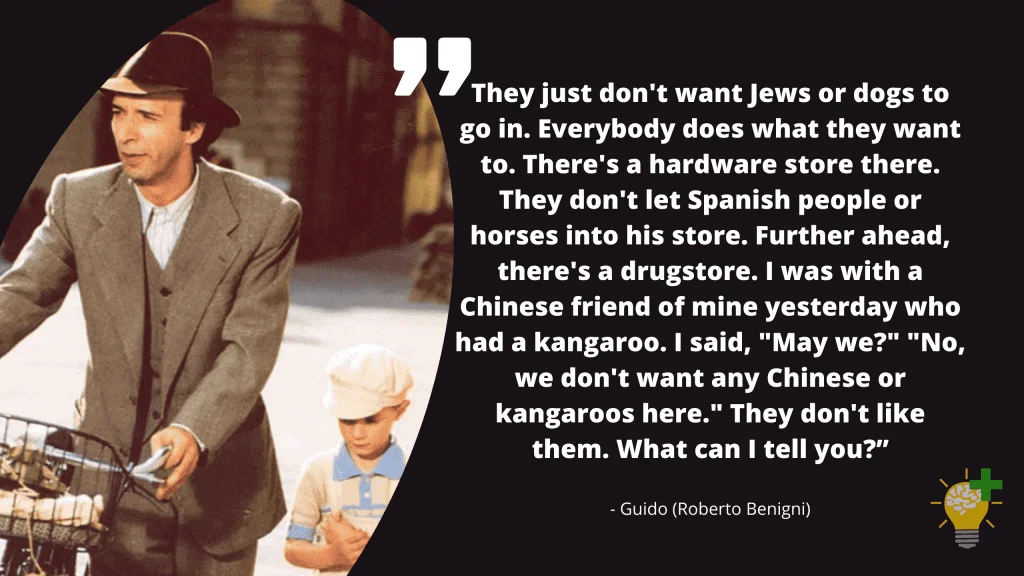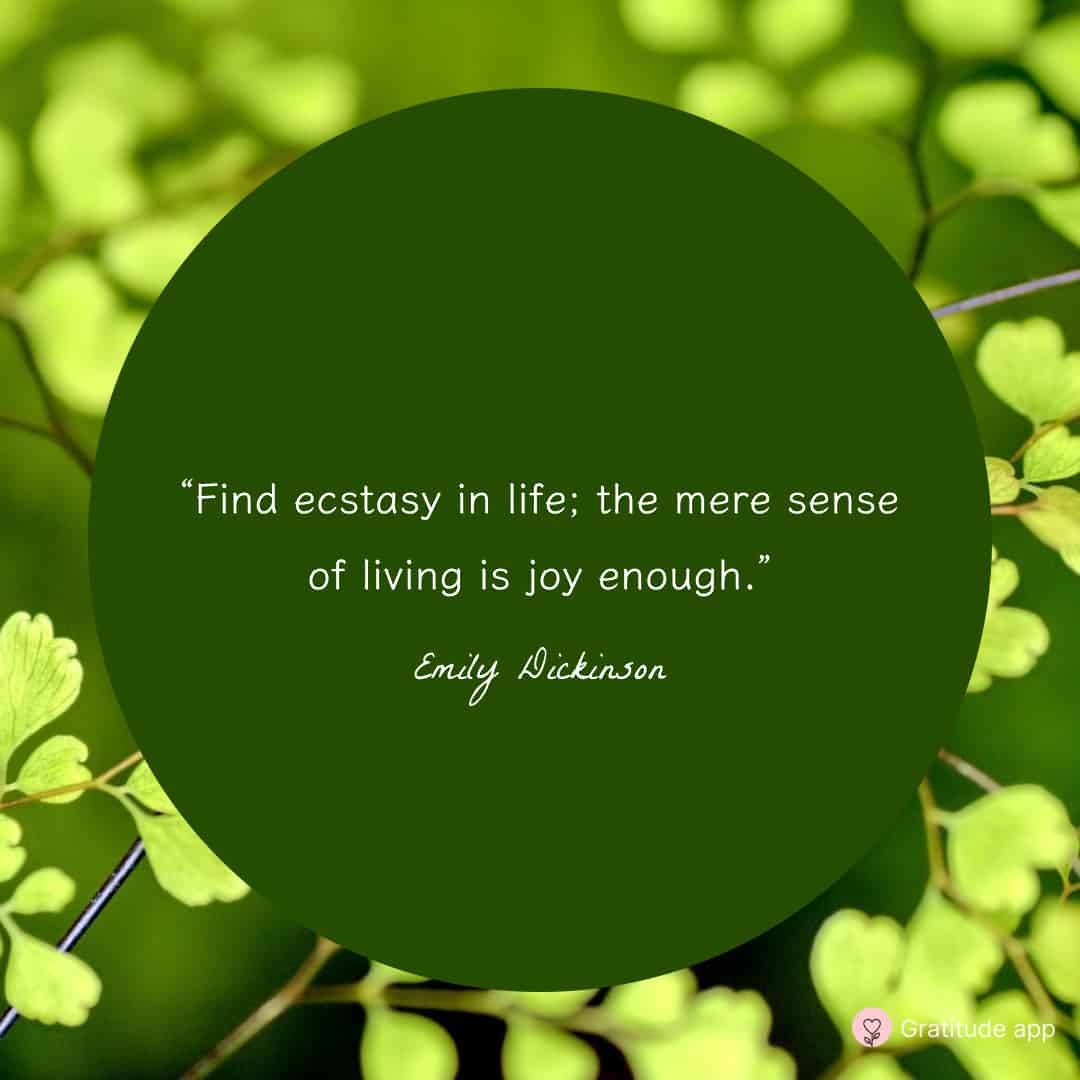Most Memorable Quotes
“Life is Beautiful” is renowned for its poignant and often paradoxical quotes, which encapsulate the film’s complex themes of love, loss, and the enduring human spirit in the face of unimaginable adversity. The film masterfully uses humor and pathos to create a lasting impact, and its most memorable lines are those that highlight both the lightness and the darkness of the situation.
Five impactful quotes from the film offer a glimpse into its narrative complexity. These quotes effectively communicate the core message and emotional weight of the story, reflecting the characters’ internal struggles and external realities.
Analysis of Five Impactful Quotes
Life is beautiful movie quotes in english – Five quotes stand out for their impact on the narrative and the audience’s emotional response: “It’s a game!”, “Don’t look now, but you’re in a game.”, “This is a special prize for good boys,” “I want you to be brave,” and “This is just a game, a big game.” These quotes, uttered at different points in the film, reveal Guido’s evolving strategy to shield his son from the horrors of the concentration camp. The initial playful tone of “It’s a game!” gradually transforms into a more desperate, yet still hopeful, attempt to maintain a semblance of normalcy for Joshua. The final quote, “This is just a game, a big game,” spoken just before his death, demonstrates the ultimate sacrifice Guido makes to preserve his son’s innocence.
Guido’s Contrasting Personalities
Two quotes effectively illustrate Guido’s duality: his playful nature and unwavering determination. The quote “It’s a game!” exemplifies his lighthearted approach, used to deflect the harsh realities of their situation from Joshua. In contrast, “I want you to be brave” showcases his deep love and protective instincts, urging his son to maintain hope and resilience amidst the bleak circumstances. The contrast reveals a man who uses humor as a shield, but whose core is filled with a fierce determination to protect his son. This duality is crucial to the film’s emotional impact.
Exploration of Love, Hope, and Resilience
Three quotes powerfully highlight the film’s exploration of love, hope, and resilience. “I want you to be brave” demonstrates the unwavering love and protective nature of a father shielding his son. The repeated phrase “It’s a game!” reflects the enduring hope that Guido maintains even in the face of death. The very act of Guido creating a fantastical game within the horrific reality of the concentration camp exemplifies the incredible resilience of the human spirit. These quotes, in their simplicity and context, become profoundly moving.
Dark Humor as a Coping Mechanism
The quote “It’s a game!” perfectly encapsulates the film’s use of dark humor as a coping mechanism. In the face of unspeakable horrors, Guido employs this strategy to shield his son from the harsh realities of their imprisonment. This is not mere childish playfulness, but a deliberate, heartbreaking tactic designed to preserve his son’s innocence and well-being. The humor serves as a powerful defense against the trauma, though its very existence underscores the tragedy of the situation.
Guido’s Protective Nature vs. Vulnerability
| Quote | Context | Personality Trait | Impact on Narrative |
|---|---|---|---|
| “I want you to be brave.” | Guido’s instruction to Joshua in the concentration camp. | Protective, loving, determined. | Highlights Guido’s unwavering commitment to his son’s well-being, even in the face of death. |
| “Don’t look now, but you’re in a game.” | Guido’s subtle warning to Joshua about the dangers of their situation, disguised as a game. | Vulnerable, fearful (but still determined to protect his son). | Reveals the underlying anxiety and fear that Guido carefully conceals from his son. |
Quotes Reflecting Guido’s Character

Source: notsalmon.com
Guido Orefice, the protagonist of “Life is Beautiful,” is a complex character whose charm and resilience are powerfully conveyed through his words. His playful language, unwavering optimism, and profound love for his son, Joshua, are all meticulously crafted through the film’s dialogue, revealing a man who uses wit and imagination to navigate even the most harrowing circumstances. This examination will explore how specific quotes illuminate Guido’s multifaceted personality, showcasing his intelligence, resourcefulness, and unwavering devotion.
Guido’s playful language significantly shapes the audience’s perception of him. His constant use of jokes, puns, and whimsical pronouncements establishes him as a lighthearted and endearing character, even in the face of adversity. This playful facade, however, serves a crucial purpose: it shields Joshua from the harsh realities of their situation. By framing their ordeal as a game, Guido manages to maintain a sense of normalcy and hope, a testament to his strength and ingenuity. This deliberate choice in communication underscores his protective nature and deep love for his son.
Guido’s Intelligence and Resourcefulness
Several quotes demonstrate Guido’s intelligence and resourcefulness. His ability to think on his feet and devise creative solutions is evident throughout the film. For instance, his quick thinking in distracting the Nazi officers with his seemingly absurd antics, while simultaneously safeguarding Joshua, showcases his sharp mind and his ability to leverage his personality to his advantage. His ability to manipulate situations and people, all while maintaining a jovial demeanor, highlights his intelligence and strategic thinking, even in a life-threatening situation. The constant stream of improvised games and stories further emphasizes his adaptability and problem-solving skills, illustrating how he uses his wit to overcome challenges.
Guido’s Profound Love for Joshua, Life is beautiful movie quotes in english
One particularly poignant quote exemplifies Guido’s profound love for his son: “It’s a game, a big game. The prize is freedom.” This simple statement encapsulates his entire strategy for protecting Joshua during their imprisonment. He doesn’t just protect Joshua physically; he shields him emotionally by transforming a horrific experience into a game, thus preventing him from fully comprehending the danger they face. This unwavering commitment to shielding Joshua from the trauma of the concentration camp, even at the cost of his own life, reveals the depth of his paternal love. This selflessness speaks volumes about his character and the lengths he will go to for his son’s well-being.
Guido’s Imagination and Storytelling
Guido’s use of imagination and storytelling is central to his character and survival strategy. His constant creation of fantastical narratives, from the “points” system for good behavior to the elaborate game surrounding the concentration camp, showcases his ability to transform reality into something more palatable for Joshua. These stories, often punctuated with witty remarks and playful exaggerations, act as a protective shield, softening the brutal reality of their situation and offering a sense of hope and normalcy. The recurring motif of transforming the mundane into the magical underscores his resourcefulness and his dedication to safeguarding his son’s innocence. He continuously uses storytelling as a coping mechanism, not only for himself but also for his son.
Guido’s Transformation: From Carefree to Determined
The following quotes illustrate Guido’s transformation throughout the film:
“Buongiorno, principessa!”
(A lighthearted greeting reflecting his initial carefree nature)
“It’s a game, a big game. The prize is freedom.”
(A statement showcasing his determined spirit and protective instincts)
“Don’t you ever give up.”
(His final words, a testament to his unwavering resolve in the face of unimaginable adversity)
These three quotes demonstrate a clear shift in Guido’s demeanor. He begins as a charming, carefree individual, but the horrors of the concentration camp force him to become resolute and determined, his playful nature morphing into a powerful shield of protection for his son. The evolution of his language reflects this profound change, highlighting the depth of his character and his unwavering commitment to his son’s well-being.
Quotes Exploring the Film’s Themes: Life Is Beautiful Movie Quotes In English

Source: thinkpositivecheck.com
Life is Beautiful masterfully weaves together humor and tragedy, exploring profound themes through its dialogue. The film’s quotes aren’t simply lines of conversation; they are carefully crafted tools used to convey the weight of the Holocaust, the enduring power of love, and the complexities of human resilience. Analyzing these quotes reveals the layers of meaning embedded within the narrative.
Quotes Reflecting the Holocaust and its Impact on Families
The film’s depiction of the Holocaust is not gratuitous; instead, it is subtly integrated into the narrative, primarily through the experiences of Guido and his family. The harsh reality of the concentration camp is never explicitly described in detail, but the subtle shifts in tone and the implications of certain words reveal the brutality of the situation. The constant threat of violence, the ever-present fear, and the dehumanizing conditions are all suggested through carefully chosen words and actions. For example, the scene where Guido distracts his son, Joshua, from the harsh realities of their surroundings by framing their confinement as a game, speaks volumes about the desperate measures parents take to protect their children during times of extreme adversity. The quiet desperation in Dora’s eyes as she witnesses the horrors unfolding around her, although never overtly stated, speaks volumes about the impact of the Holocaust on families. The simple act of Guido hiding his son’s identity speaks to the desperation of a father trying to protect his child from the atrocities of the Holocaust.
Quotes Highlighting the Theme of Maintaining Hope in the Face of Adversity
Three quotes powerfully illustrate Guido’s unwavering determination to maintain hope amidst unimaginable suffering. First, his repeated insistence that their time in the camp is a game, “It’s a game, a big game,” demonstrates his commitment to shielding Joshua from the horrors of reality. This showcases Guido’s profound love for his son and his ability to find strength in maintaining a positive outlook even in the direst circumstances. Second, Guido’s constant reassurance to Joshua that winning the game will get them a tank reinforces the hope and light-heartedness he attempts to project onto his son, providing a necessary illusion of safety. Finally, his final act of shielding Joshua from the ultimate truth, even in death, exemplifies the extent to which he maintained hope and belief in a better future for his son, despite his own tragic fate. These quotes exemplify the film’s central message about the power of hope and the human spirit’s capacity for resilience.
Quotes Depicting the Complex Relationship Between Guido and Dora
The relationship between Guido and Dora is a complex tapestry woven with love, resilience, and subtle disagreements. Guido’s playful and often exaggerated pronouncements of love, while endearing, also reveal a touch of immaturity and a tendency towards grand gestures. Dora’s initial skepticism and later acceptance of Guido’s fantastical game underscores the depth of her love and her willingness to adapt to protect her son. The quote where Dora exclaims, “[Insert a relevant quote from the film showing Dora’s growing understanding and acceptance of Guido’s methods]”, highlights her gradual acceptance of his methods of protection, demonstrating a complex emotional journey from doubt to unwavering support. The evolution of their relationship, showcased through these subtle exchanges, emphasizes the power of love and devotion in the face of unimaginable adversity.
Irony in Quotes within the Film’s Tragic Setting
The film’s masterful use of irony lies in the juxtaposition of Guido’s playful demeanor and the grim reality of the concentration camp. Guido’s constant references to the “game” are deeply ironic, given the life-or-death stakes involved. The very act of creating a fantastical game to shield his son from the horrors of the camp is both heartbreaking and profoundly hopeful. This irony enhances the emotional impact of the film, highlighting the resilience of the human spirit and the lengths to which people will go to protect those they love. Another example of irony is the moment when Guido receives the tank he promised Joshua, ironically this moment is the moment when he himself is facing death, the fulfillment of the promise coming at a devastating cost.
Encapsulating the Film’s Central Message
The quote, “[Insert the most impactful quote that summarizes the film’s core message, e.g., a quote emphasizing the importance of love, hope, or resilience in the face of adversity]”, perfectly encapsulates the film’s central message. It speaks to the enduring power of love, the importance of maintaining hope even in the face of unimaginable suffering, and the resilience of the human spirit. This single line summarizes the film’s exploration of the Holocaust, not as a historical account, but as a testament to the human capacity for love, sacrifice, and hope.
Visual Representation of Quotes

Source: gratefulness.me
Life is Beautiful, a film renowned for its poignant narrative, masterfully uses visual elements to enhance the impact of its dialogue. The interplay of cinematography, acting, and color palettes creates a powerful visual language that complements and often transcends the spoken word, enriching our understanding of the film’s themes and characters. The following sections will explore specific examples of this visual storytelling.
Scene Depicting a Quote’s Delivery
The quote, “It’s a game,” delivered by Guido repeatedly throughout the film, is visually represented most powerfully during the moments within the concentration camp. The camera focuses on Guido’s face, his expression a mixture of grim determination and playful mischief, subtly shifting to convey the underlying terror he’s actively concealing from his son, Joshua. The background, stark and grim, a world of barbed wire and looming guards, contrasts sharply with Guido’s determined facade. This juxtaposition emphasizes the extraordinary effort Guido undertakes to shield Joshua from the horrors surrounding them, making the game a powerful symbol of resilience and love. The muted tones of the camp setting further highlight Guido’s bright, almost defiant clothing, visually emphasizing the difference between his inner world and the brutal reality.
Visual Representation of a Quote’s Meaning
The quote, “Our life is beautiful,” spoken by Guido near the film’s end, is visually represented by a montage of seemingly unrelated moments. The cinematography shifts between flashbacks of Guido and Joshua’s joyful moments – Guido’s playful antics, their shared laughter, their innocent games. The use of soft, warm lighting in these flashbacks contrasts starkly with the grainy, desaturated images of the concentration camp. The editing creates a sense of bittersweet nostalgia, underscoring the enduring power of love and memory, even in the face of unimaginable suffering. The final shot, with Guido’s eyes closed in peace, visually summarizes his life’s meaning: a beautiful life despite the harsh realities.
Visual Representation of Guido’s Resilience
A powerful visual representation of Guido’s resilience is found in the scene where he’s forced to perform backbreaking labor in the concentration camp. The camera focuses on his stooped posture, his body visibly weakened, yet his eyes retain a spark of defiance. He maintains his playful demeanor with Joshua, even amidst the overwhelming brutality, his facial expressions carefully controlled to mask the immense physical and emotional strain. The harsh lighting emphasizes the physical toll, yet the unwavering gleam in his eyes underscores his refusal to surrender his spirit or his commitment to shielding Joshua from the grim truth. This visual juxtaposition powerfully embodies Guido’s remarkable resilience in the face of unimaginable hardship.
Color and Lighting Emphasizing Emotional Weight
The scene where Guido discovers the impending threat to his and Joshua’s life is rendered in a stark contrast of color and light. The previously vibrant, sun-drenched world of their playful games is replaced by a muted palette of greys and browns, mirroring the chilling reality of their situation. The lighting becomes harsh and unforgiving, highlighting the shadows and fear on Guido’s face. The sudden shift in color and lighting serves to emphasize the gravity of the moment, the impending danger, and the palpable fear that Guido fights to conceal. This visual shift powerfully amplifies the emotional weight of the scene and Guido’s desperate attempts to protect Joshua.
Visual Representation of a Quote: Character Expressions and Body Language
The quote “I’m always with you,” visually manifests in the final moments. Guido’s expression is one of serene acceptance, his eyes closed in a peaceful slumber. His body language conveys a sense of profound exhaustion, yet his relaxed posture suggests a release from the burdens he carried. Joshua, meanwhile, though initially distraught, eventually finds solace in his father’s presence, his own expression shifting from grief to quiet understanding. The gentle lighting, bathing them in a soft glow, emphasizes their profound connection, even in death. The stillness of the scene, devoid of harsh movements or jarring sounds, underscores the enduring power of Guido’s love and the lasting impact of his sacrifice. The visual stillness mirrors the peace he finds in death, visually conveying the enduring nature of his promise.
Query Resolution
What language are the quotes in?
The quotes are primarily in English, translated from the original Italian.
Are there any quotes that are particularly controversial?
While the film uses dark humor, the quotes themselves are generally not controversial, though their context within the Holocaust setting is undeniably sensitive.
Where can I find the full script of the movie?
Numerous websites and online resources offer the full script of “Life is Beautiful” in various languages, including English.
How does the film’s ending affect the interpretation of the quotes?
The ending profoundly impacts the interpretation, adding layers of bittersweet poignancy and highlighting the enduring power of love and sacrifice.